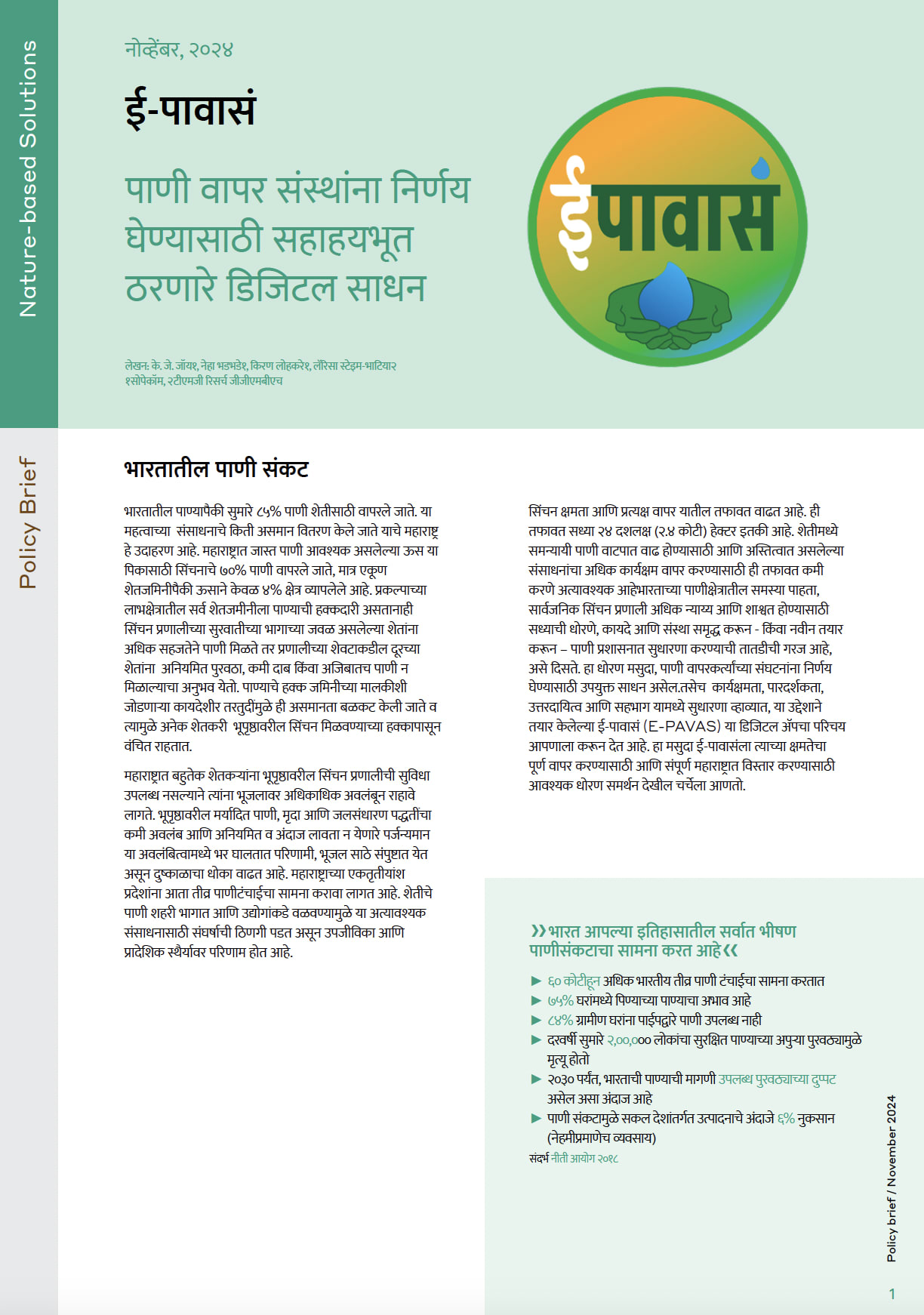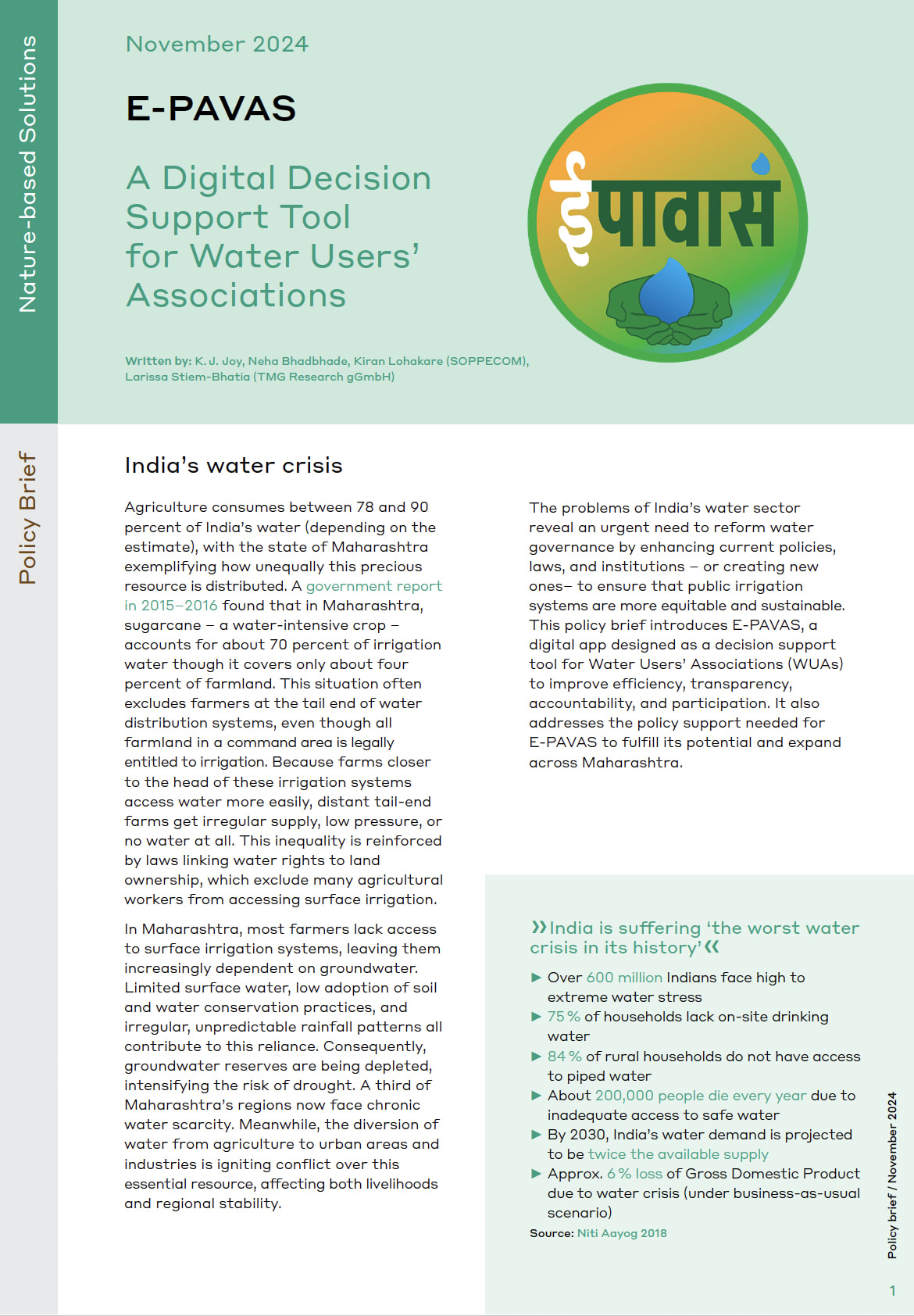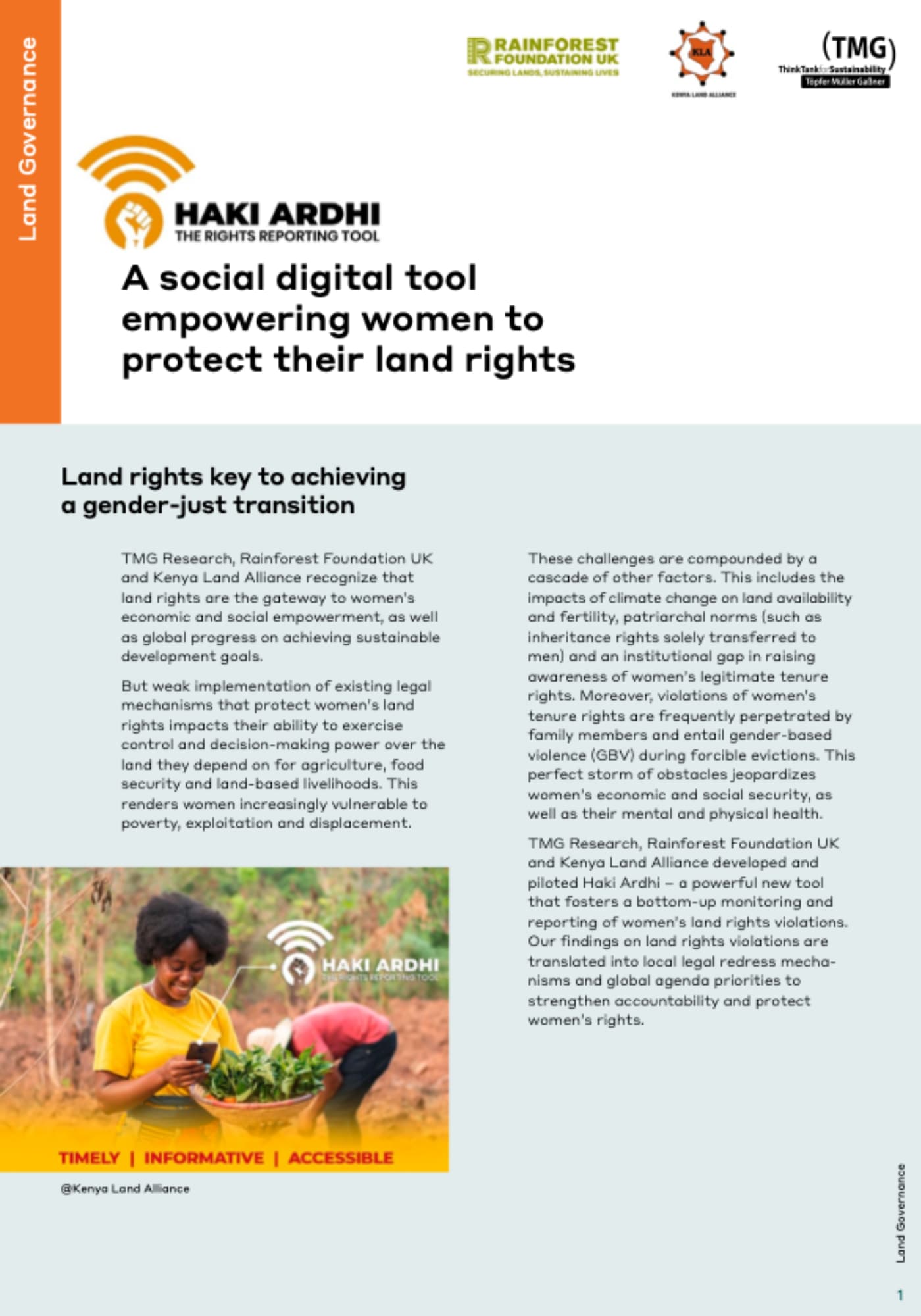SEWOH Lab
This action-oriented research project explores, applies, and evaluates the potential of digital innovation in three key areas: urban agriculture and nutrition; ecosystem-based climate adaptation; and women's access to land. The project focusses on developing and advancing concrete solutions for low-income urban populations and small-scale farming communities in several African countries and India.
The aim of the Urban Agriculture and Nutrition thematic research strand is to explore the role of digital solutions in further strengthening food security and livelihood opportunities for marginalized groups. We explore how digitalization can enhance the empowerment of vulnerable groups through strengthening access to information and public services, lowering transaction costs along agri-food chains, and improving the design and enforcement of relevant public policies.
Our workstream on nature-based solutions investigates how local institutions in smallholder farming contexts can be strengthened through digitalization in climate adaptation, with a focus on water resources. In this regard, digitalization is not regarded as an end in itself but as a means to enable farmers and other land users to make better informed decisions with a view to enhance the resilience of their production systems in the face of climate change. The project is currently exploring how to support Water User Associations in the Indian state of Maharashtra to utilize digital tools to manage limited water resources in a more sustainable and equitable way.
The Gender and Land Rights workstream focuses on digital tools such as monitoring and alert systems for supporting women’s land rights and report rights violations. We aim equally at an in-depth analysis of the opportunities as well as risks of digital innovations in the context of strengthening tenure security for women. Together with our partners Kenya Land Alliance and Rainforest Foundation UK, we are piloting a digital reporting tool in two counties in Kenya.
Central to the SEWOH Lab is the question of how, and under what conditions, digitalization translates into practical opportunities for addressing the numerous challenges mentioned above. This requires understanding broader social, political and institutional dynamics, and, where necessary, exploring the kinds of social and organizational innovations needed to harness the potential of digital technologies to deliver on multiple targets under the Sustainable Development Goals, including food and nutrition security, sustainable natural resource use, and resilience to climate change.
Details
Team
Publications

Policy Brief
A Digital Decision Support Tool for Water Users’ Associations_Marathi
This policy brief introduces E-PAVAS, a digital app designed as a decision support tool for Water Users’ Associations (WUAs) to improve efficiency, transparency, accountability, and participation.
Written by K. J. Joy, Neha Bhadbhade, Kiran Lohakare (SOPPECOM), Larissa Stiem-Bhatia (TMG Research)
Published on Nov 29, 2024

Policy Brief
A Digital Decision Support Tool for Water Users’ Associations
This policy brief introduces E-PAVAS, a digital app designed as a decision support tool for Water Users’ Associations (WUAs) to improve efficiency, transparency, accountability, and participation.
Written by K. J. Joy, Neha Bhadbhade, Kiran Lohakare (SOPPECOM), Larissa Stiem-Bhatia (TMG Research)
Published on Nov 29, 2024

Info Brief
Haki Ardhi – A social digital tool empowering women to protect their land rights
TMG Research, Rainforest Foundation UK and Kenya Land Alliance developed and piloted Haki Ardhi – a powerful new tool that fosters a bottom-up monitoring and reporting of women’s land rights violations.
Written by TMG Land Governance Team
Published on Mar 21, 2024

Policy Brief
From Data to Action Socially Embedded and Inclusive Digitalization for Food Systems Transformation
This policy brief presents an emerging consensus on the conditions needed to ensure that digitalization shapes food systems transformation in a positive way.
Written by Larissa Stiem-Bhatia, David Betge, Clare Crowe Pettersson
Published on Feb 28, 2024

Policy Brief
Harnessing Digitalisation for Water Governance. Key insights from India
This policy brief presents lessons and recommendations for policymakers and practitioners to strengthen inclusive water governance, with a focus on using digital tools, as well as the challenges which can hinder its effective and inclusive implementation.
Written by Neha Bhadbhade, Larissa Stiem-Bhatia, K. J. Joy, Abraham Samuel, and Dipankar Aich
Published on Jan 24, 2024

Working Paper
Digitalisation in Water Governance for Agriculture: Lessons from the field in India
This report seeks to identify how local institutions can best use digital tools to make water governance more effective and inclusive, for sustainable water use and climate-resilient crop planning.
Written by Neha Bhadbhade, K.J. Joy, Sarita Bhagat, Kiran Lohakare, Larissa Stiem-Bhatia, Dipankar Aich
Published on Jan 24, 2024
News & Blog Posts
Haki Ardhi – the women’s land rights reporting tool

From Data to Action Socially Embedded and Inclusive Digitalization for Food Systems Transformation
Digitalisation in Water Governance for Agriculture: Lessons from the field in India
Harnessing Digitalisation for Water Governance. Key insights from India

Open research and consultancy positions at TMG

International Women's Day 2023
Videos
- Land Governance Mar 11, 2024
The Haki Ardhi App
A tool that enables women to report tenure rights violations and gender-based violence.
- Land Governance Jun 02, 2022
No Sustainability Transition Without Securing Legitimate Land Rights - TMG @ COP 15
TMG and partners bring "Rights to Land" agenda to COP 15
- Food Systems Dec 17, 2021
Innovative digital tools to enhance food security in Africa (Highlights)
A contribution to debates on the EU Comprehensive Strategy with Africa
- Food Systems Dec 08, 2021
Innovative digital tools to enhance food security in Africa (Event Recording)
A contribution to debates on the EU Comprehensive Strategy with Africa



